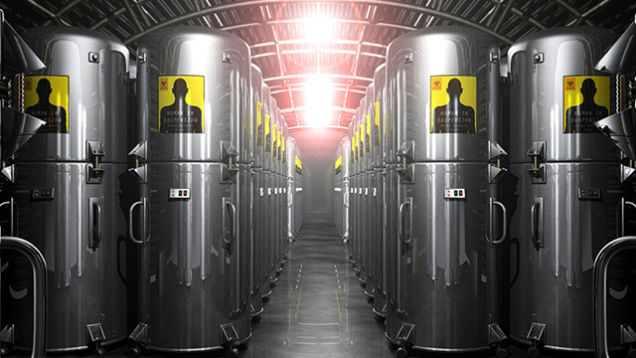|
By Kimberley Shen
Edited By Arianna Winchester On January 8, 2015, a two-year old Thai girl named Matheryn Naovaratpong died of ependymoblastoma, a rare form of brain cancer. Over the course of almost a year, she had 12 brain surgeries, 20 chemotherapy treatments, and 20 radiation therapy sessions. However, in spite of her doctors’ best efforts, the cancer continued to spread and ultimately paralyzed her face and muscles. Knowing that their daughter had no hope of recovery, Matheryn’s parents, Sahatorn and Nareerat Naovaratpong, decided to take her off life support. But even as their daughter’s health was rapidly deteriorating, Matheryn’s parents still wanted to give Matheryn another chance at life. They decided to contact Alcor, a non-profit organization in Arizona that cryonically preserves the bodies of the deceased. For a fee of $80,000, they will deep freeze a human brain and the body it came from. Alcor already has over 130 humans in cryopreservation. Many prominent figures have already been cryopreserved with the help of Alcor, including famous baseball player Ted Williams and his son, John Henry Williams. Alcor is quite optimistic about the future of the human remains it preserves, stating that its company mission is “to prevent death by preserving sufficient cell structure and chemistry so that recovery (including recovery of memory and personality) remains possible by foreseeable technology.” Shortly after Matheryn was pronounced dead, the Alcor team began their “cryoprotection” procedure. Two-year old Matheryn became Alcor’s youngest patient so far. Matheryn’s body fluids were removed and replaced with anti-freeze in order to prevent tissue damage during the deep freeze process. Her brain was then removed and preserved at a temperature of -196°C. Her brain is intended to remain frozen until medical technologies find a way to revive her body and unite her with her brain. However, many scientists remain skeptical about cryonics. Dr. Michael Shermer, an American science writer, argues that, “at the moment, the chances of resuscitation are pretty close to zero.” In response to many cryonicists’ arguments that human embryos have been frozen and used again, he asserts, “Freezing single cells or an egg is one thing. A dog or human is more complex.” Nevertheless, in spite of the skeptics, Sahatorn Naovaratpong and his wife both seem optimistic about the possibility of their daughter’s revival, declaring that they “believe death can be overcome in the future. Human beings are seeing technology increasing exponentially. It just doubles, doubles, doubles.” He and Nareerat have been accumulating artifacts from Matheryn’s past life on hard drives. If she is revived, her parents hope that she will be able to turn to this collection of family photos, video clips, and hospital records to gain a better understanding of her past life. Sahatorn even said that he and his wife hope to cryopreserve their own bodies in the hopes that they can be reunited with their daughter. Although Sahatorn acknowledged that the chances of this dream coming to fruition are slim, he hopes that medical advances will keep them both alive long enough to see their daughter again.
0 Comments
Leave a Reply. |
Categories
All
Archives
April 2024
|

